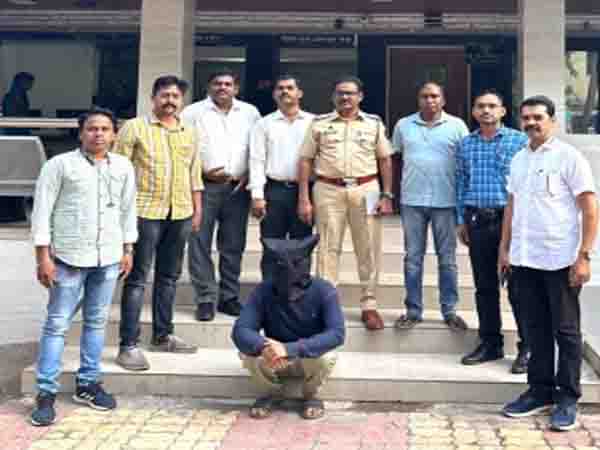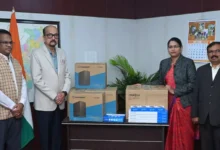Shadow of Ghaziabad conversion case, shadow on online gaming

Ghaziabad (IANS) | Amid reports of online gaming being manipulated into alleged ‘conversion’ and ‘terrorism’ supported by cross-border elements, police say players are being offered ‘winnings’ through gaming platforms for such activities. Is.
Organizations indulging in such acts are using techniques like false inclusion, preaching in game chats, recruitment through game-related platforms, offering in-game benefits, said a senior official of Delhi Police’s Special Cell.
The world of online gaming provides a diverse and interconnected space where millions of players gather to share their passion for virtual adventures. However, amid the camaraderie and enthusiasm, the alleged online gaming proselytization racket does not appear to be a ‘spirited play’.
To further a religious agenda, the alleged accused target the vulnerabilities of unsuspecting players through a deceptive scheme and take undue advantage of their love for gaming.
According to police, online gaming religion conversion rackets involve people or organizations seeking to convert gamers to specific religious beliefs through deceptive tactics and manipulative techniques.
These scammers take advantage of the pervasive nature of online gaming, taking advantage of the strong bonds built within the gaming community to introduce religious ideologies and attempt to convert players.
Sharing the details, the top cop further said that by using false inclusivity, scammers can infiltrate gaming communities under the guise of friendly and inclusive players. He said that they engage in dialogue, build alliances and gradually introduce religious concepts or discussions.
They may start casual conversations about spirituality, purpose of life, or ethics, eventually leading the conversation to their specific religious beliefs, said a police officer from the cyber cell. This can be especially effective when targeting players searching for deeper meaning or connection.
He further added that scammers take advantage of online forums, social media groups and gaming platforms dedicated to specific games to contact players. They may create fake profiles or pose as fellow gamers to start conversations and gently introduce religious concepts, inviting players to learn more about their faith.
Some scammers entice players with the promise of in-game benefits. They are offered rare items, power-ups, or special privileges if they adopt a particular religion or join a specific religious community.
This manipulative strategy preys on players’ desire to progress and compete, forcing them to consider conversion for virtual prizes, the official said.
Recently an online gaming conversion racket was busted in Ghaziabad, Uttar Pradesh. It came to light when the father of a minor victim came to know that his son was lying about going to the gym and going to the mosque instead of prayers.
The investigation began after the minor boy’s father complained to the police that his son had come in contact with a person through a gaming app and was induced to visit the mosque in Ghaziabad’s Sanjay Nagar.
On May 30, a case was registered against Abdul Rehman, the cleric of a mosque, and Shahnawaz Khan, a Thane resident, at Kavinagar police station, Ghaziabad. The case was registered after launching an investigation into the conversion racket.
Abdul Rehman, a mosque committee member in Sanjay Nagar, originally from Ballia, was later arrested for his alleged role in the conversion of at least four youths. The mosque committee has told the police that Rehman left the panel a few months ago, but has not yet produced any proof of the claim.
According to the police, Shahnawaz Khan has also been found operating at least six email IDs, one of which inbox contains some emails from Pakistan. Now, investigative agencies including NIA and IB have been roped in to find out whether it was a terror nexus operating under new modus operandi.
In another case, the Delhi Police had recently busted a huge religious conversion racket running inside a shelter home located in the Turkman Gate area of the national capital. The main accused, Mohammad Kaleem, was arrested on June 9 following a complaint filed by Sandeep Sagar, the caretaker of the shelter home. Sagar alleged that Kaleem was pressurizing him to convert to Islam, offering inducements like government jobs and financial incentives. After this the police started investigating the matter.
A former official said that after the Ghaziabad conversion racket and the arrest of Kaleem, it seems that someone is behind them, operating from across the border or elsewhere.
–IANS
















